Go, Grow, Goat: Brother-in-laws in Negros Oriental rely on local breeders to establish own goat farm
By BENJAMIN SARONDO
On a one-hectare farm in Valencia, Negros Oriental, Joseph Ambos and Ardie Estrada, owners of CEVA Farm, raise different breeds of goats, such as native goats, upgraded goats, F-series goats, boer-anglo, full-blooded boers, and dappled goats.
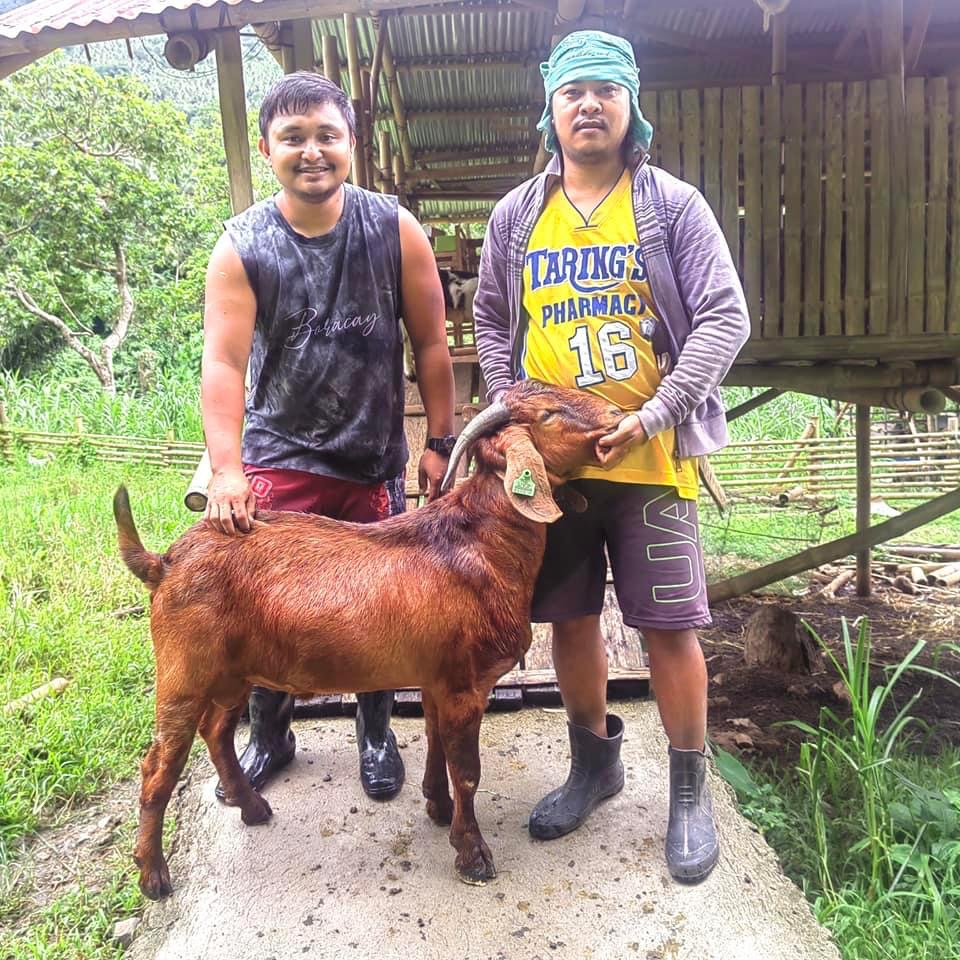
They are brother-in-laws who wanted to start their own business, and one time, Ardie opened up the idea of venturing into the goat farming industry because of a video he watched online, and they both gave it a try. In 2022, they decided to establish CEVA Farm.
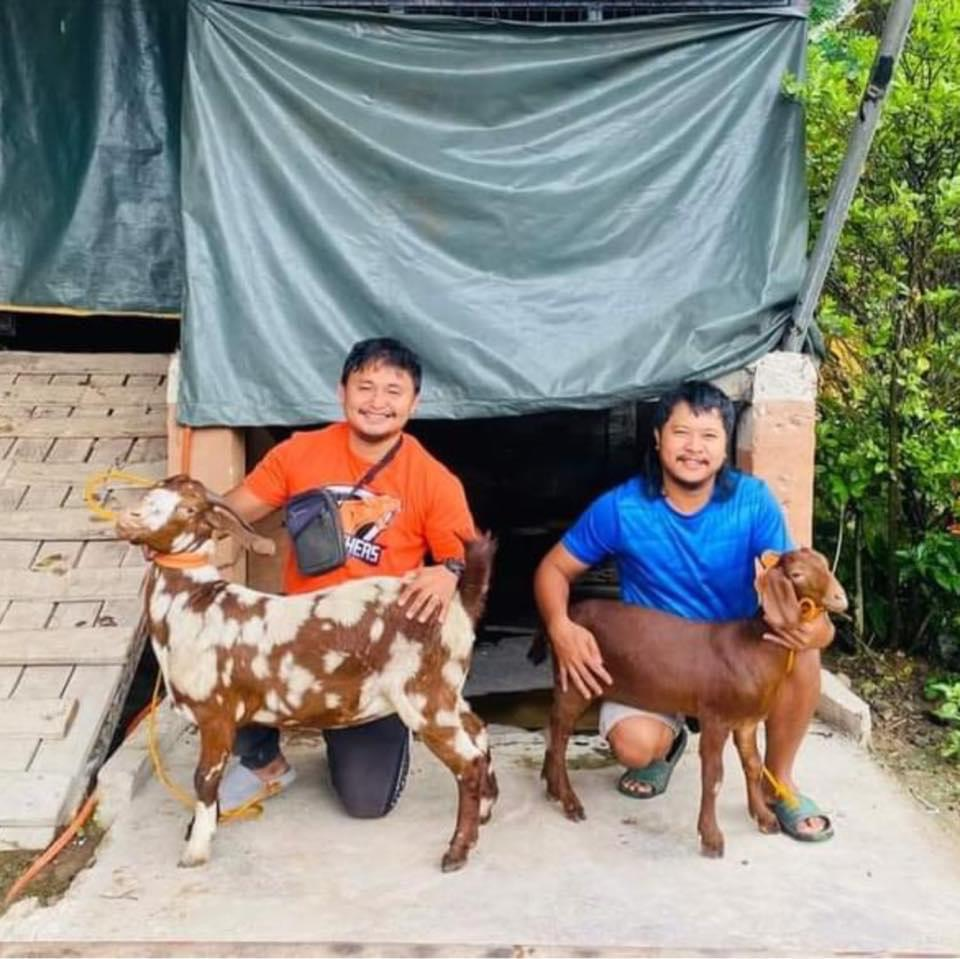
“Our parents already tried hog raising and cattle farming, so we decided to pursue goat farming, but on a small scale first, where we only had native goats and upgraded goats,” Ardie said.
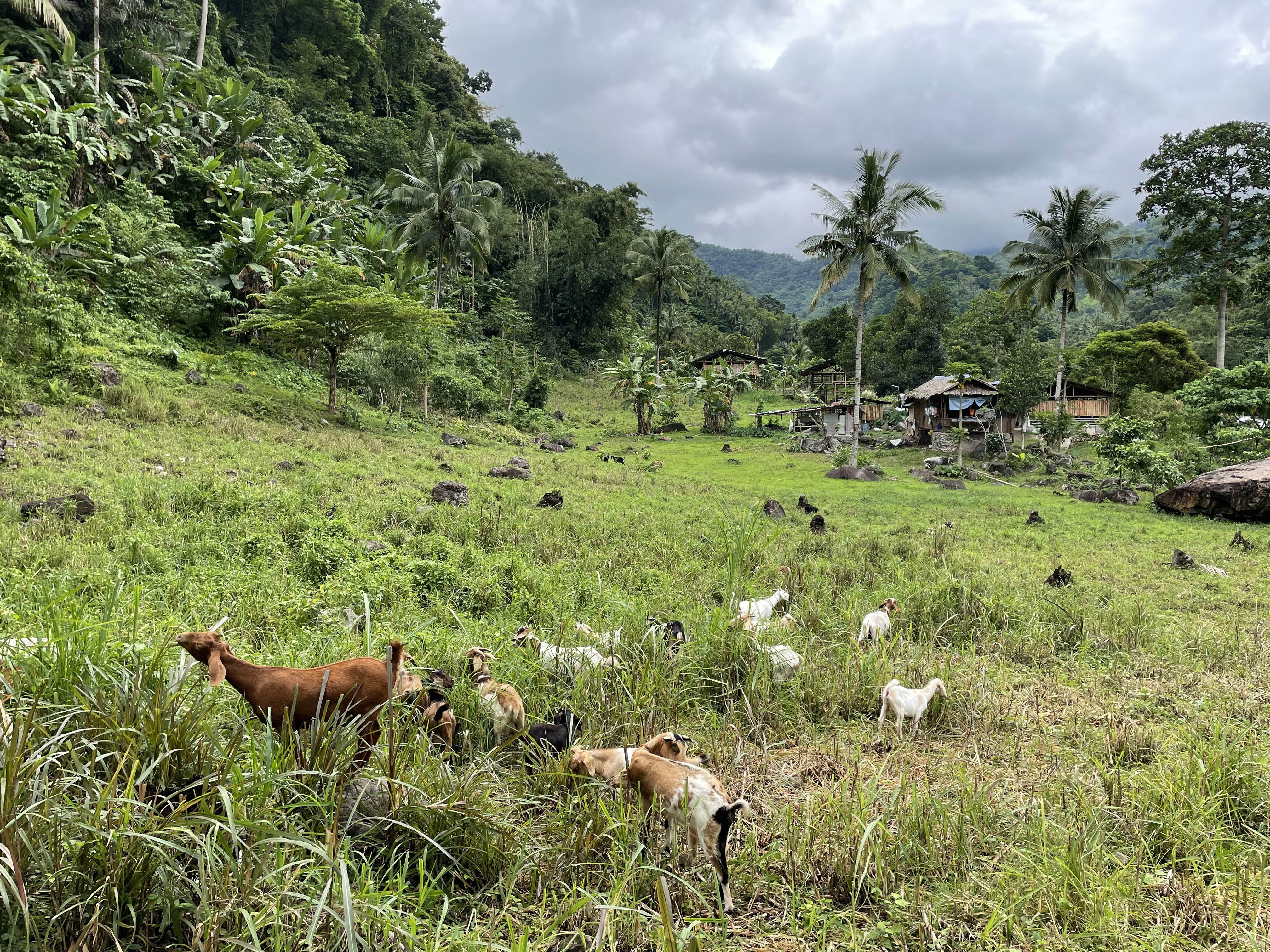
“It was a trial and error, and of course, constant learning because it was our first time to breed goats and we do not have knowledge about goat farming and goat breeding,” he said. After getting comfortable with the goats, the brother-in-laws decided to expand CEVA Farm and started to invest in full-blood boer goats.
Breeders helping breeders
Ardie said that aside from the videos they watched online to learn about goat farming and goat breeding, they also sought the help of their local goat breeders. “Since I do not have any background in goat farming, I tried my best to learn about it, because one thing I discovered is that you really have to be hands-on and responsible.”
He added that visiting other goat farms helped them learn more and understand better the different breeds of goats. The learnings they get from the farms they visited were tested at CEVA Farm, and when the techniques and strategies are suitable for the goats they breed, they maintain them, and if they are not, they look for other ways.
One of the things they accomplished from visiting different farms was to cater to all possible markets. “We are unique in a way that we have different breeds available, starting from native goats, upgraded goats, anglo-nubian, boer anglo, mix breed, full-blood boer goats, and dappled goats,” Ardie said.
Struggling but keeps going
Ardie shared that they encountered a lot of challenges in goat farming and goat breeding. "The learning process takes place every day; our knowledge expands through our experience.”
But he said that there are some situations that they cannot control; for example, when it is rainy or when there is a typhoon, they still need to gather grass and plants that they will feed their goats. There are times that Ardie and Joseph get sick because they always prioritize their goats.
“Sometimes, goats are getting sick, or worse, die. It adds up to our work load since we have to find ways on how to cure them. Instead of following our usual routine, we have to make time for taking care of the sick goats,” Ardie said.
Since Ardie and Joseph are the only ones working on the farm, Ardie said that there are times when they feel physical exhaustion and burnout. “We are hands-on on the farm; whether it is a sunny or rainy day, we have to always check and monitor our goats daily.”
Ardie added that he has a separate job, and Joseph needs to run important errands, so time management is also a problem for the both of them because they want to make sure that there will also be someone who will look after the goats.
On-time feeding
Since they want to make sure that what they feed their goats is healthy and fresh, they gather grass and plants twice on a daily basis.
When the weather is good, he said that they get grass and plants from a different location near the farm since they want to save what they grow on the farm when there is a typhoon or it is rainy season.
“What we do is introduce the goats to different kinds of plants and grass because we do not want them to be used to a particular plant or grass. It is better because you can have options on which to harvest,” Ardie said. He added that this technique should be applied to the goats morning meals when they are really hungry.
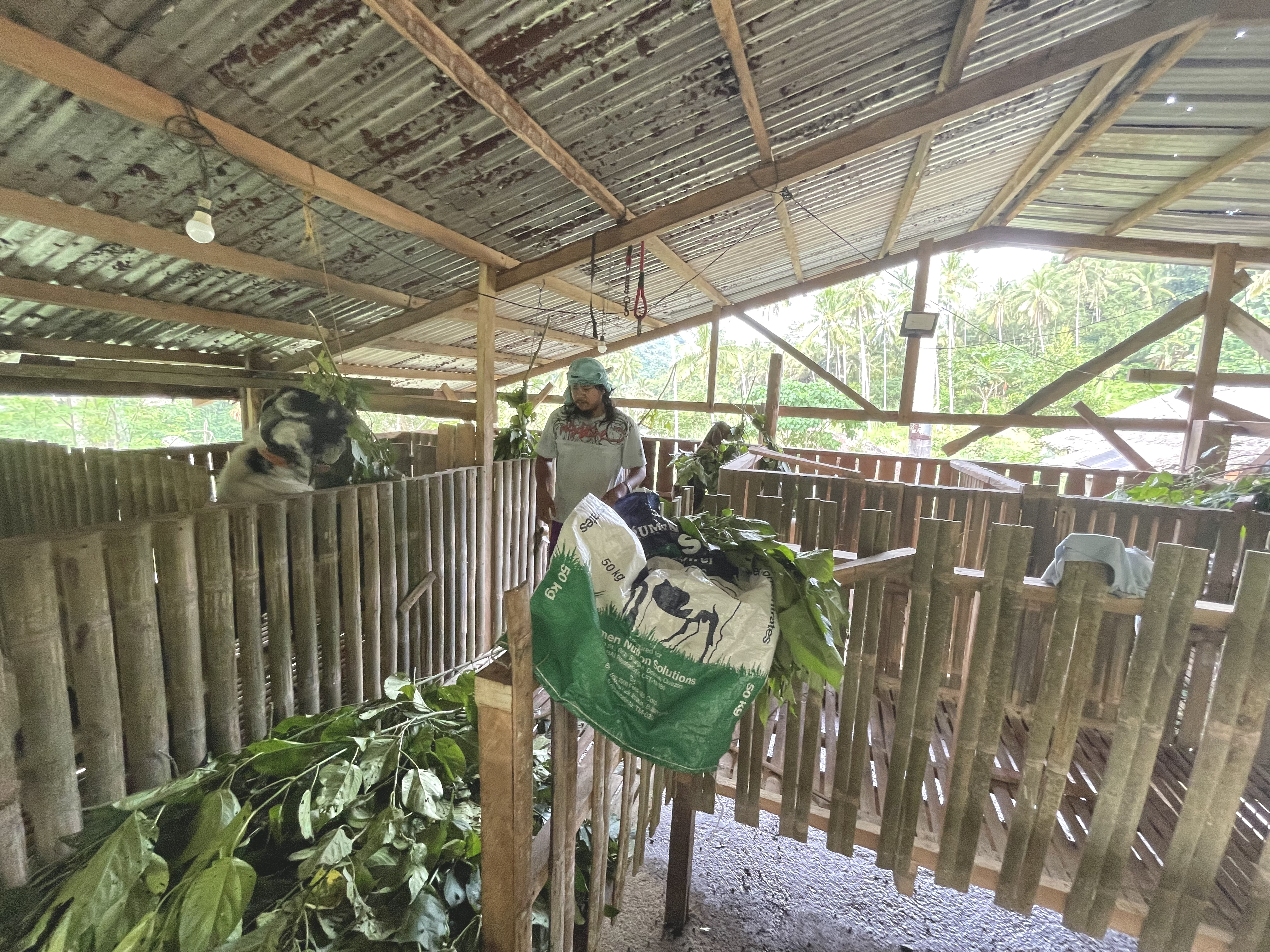
Ardie said that they also feed their goats with feed products; the RumSol feeds as advised by other goat farmers because it is made for goats and it can reduce the number of bloated goats.
“We usually mix it with copramil, molasses, salt, and water. To save money from spending too much on feed products, we feed them intervally with grass and plants,” he added.
Shifting schedules
Ardie said that the usual routine they follow on the farm is the morning and afternoon feeding of the goats of feed products and goat grower products. He added that they always make sure that they feed the goats on time.
They also deworm and provide vitamins to the goats monthly, but in case there are goats that need medication or do not eat, they give them vitamins weekly. “We usually use ivermictin and albendazole for our goats, and we use fenbendazole for the goats that are pregnant,” Ardie stated.
“We spend around 6,000 to 10,000 pesos monthly for feed products specific for ruminants, vitamins, and medicines that goats need to take,” Ardie added. They use B-complex to improve the immune system of the goats, ADE with selenium for breeding purposes, and iron for the kids, especially when they are still days or weeks old.
Both Joseph and Ardie have different tasks on the goat farm. They also have a thorough schedule to make sure that someone will take care of the goats, and when the other one is not available, the other one can make time.
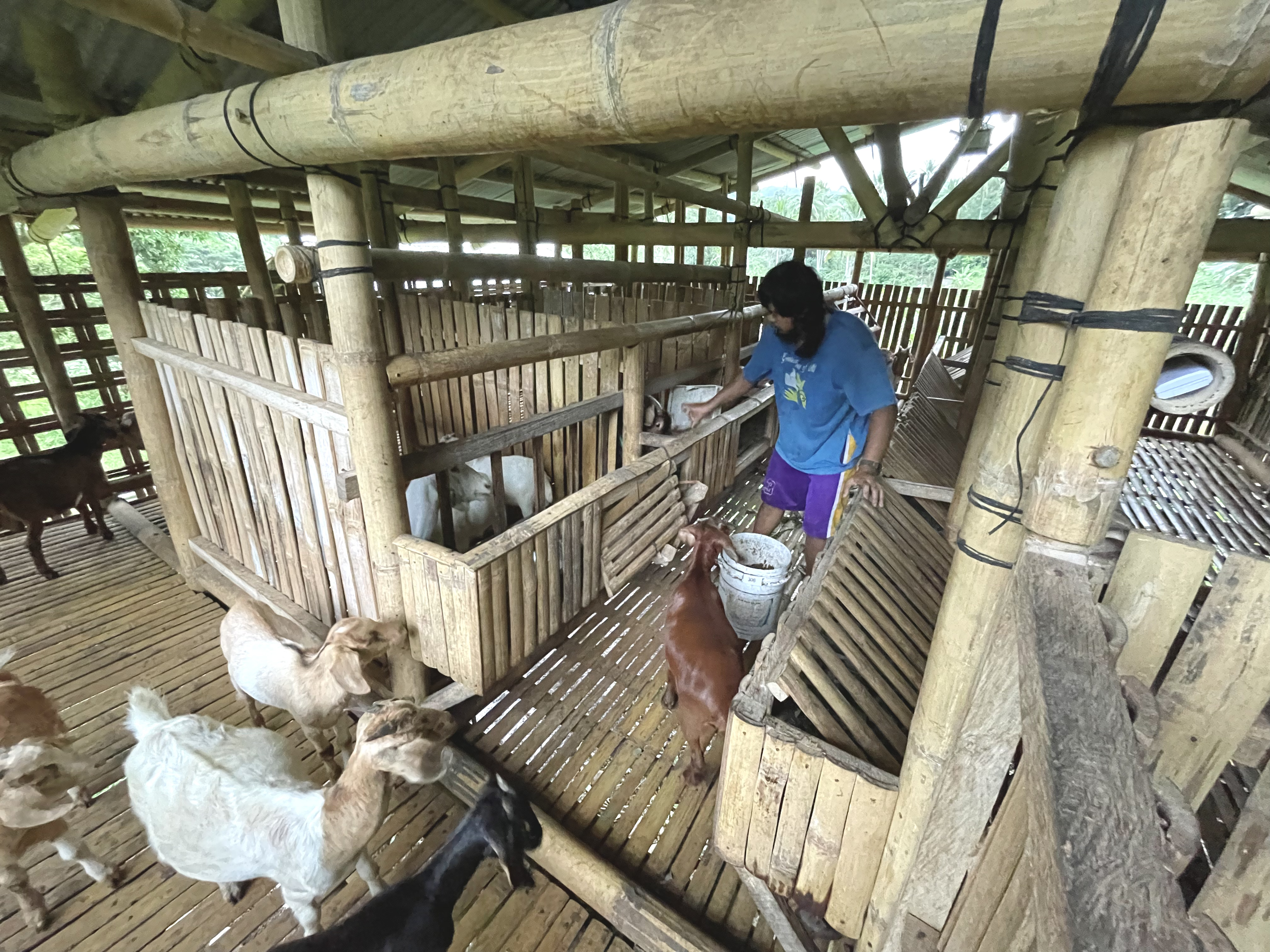
Joseph is the one responsible for feeding the goats, while Ardie is the one who will clean the goat farm. Both of them are cooperative in gathering grasses and plants. “Even though we have assigned tasks and schedules, we both know all the tasks and responsibilities on the farm, so one of us can fulfill all of them when the other one is busy.”
He said that part of their routine on the goat farm is to shepherd the goats. Kids are allowed to go outside the goat house during the morning, and adult goats are in the afternoon. When the goats were being shepherded, Ardie said that it was their time to clean the goat house.
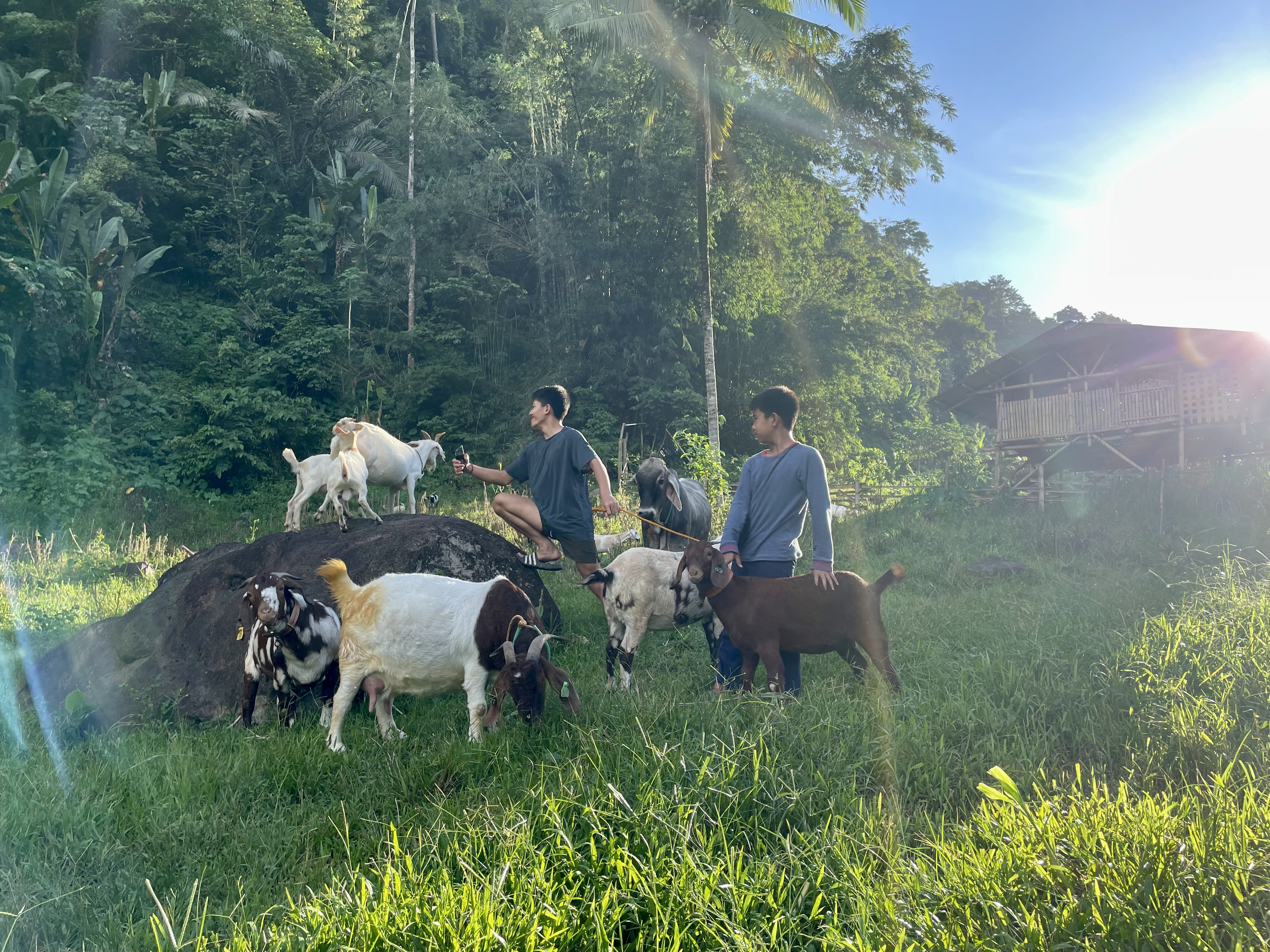
Ardie stated that it is normal to have challenges in goat farming or any other business, but their secret is to put their passion into what they do and cherish every struggle because the important thing is that they learn and grow. For him, profit and progress became meaningful considering that they overcame a lot of struggles and enjoyed their journey as goat farmers.
Re-investing and expanding
To keep the goats healthy, Ardie said that it is their strategy to make sure that CEVA Farm is profitable. “We re-invest our profit to upgrade our goat breeds to attract more customers and breeders,” Ardie added.
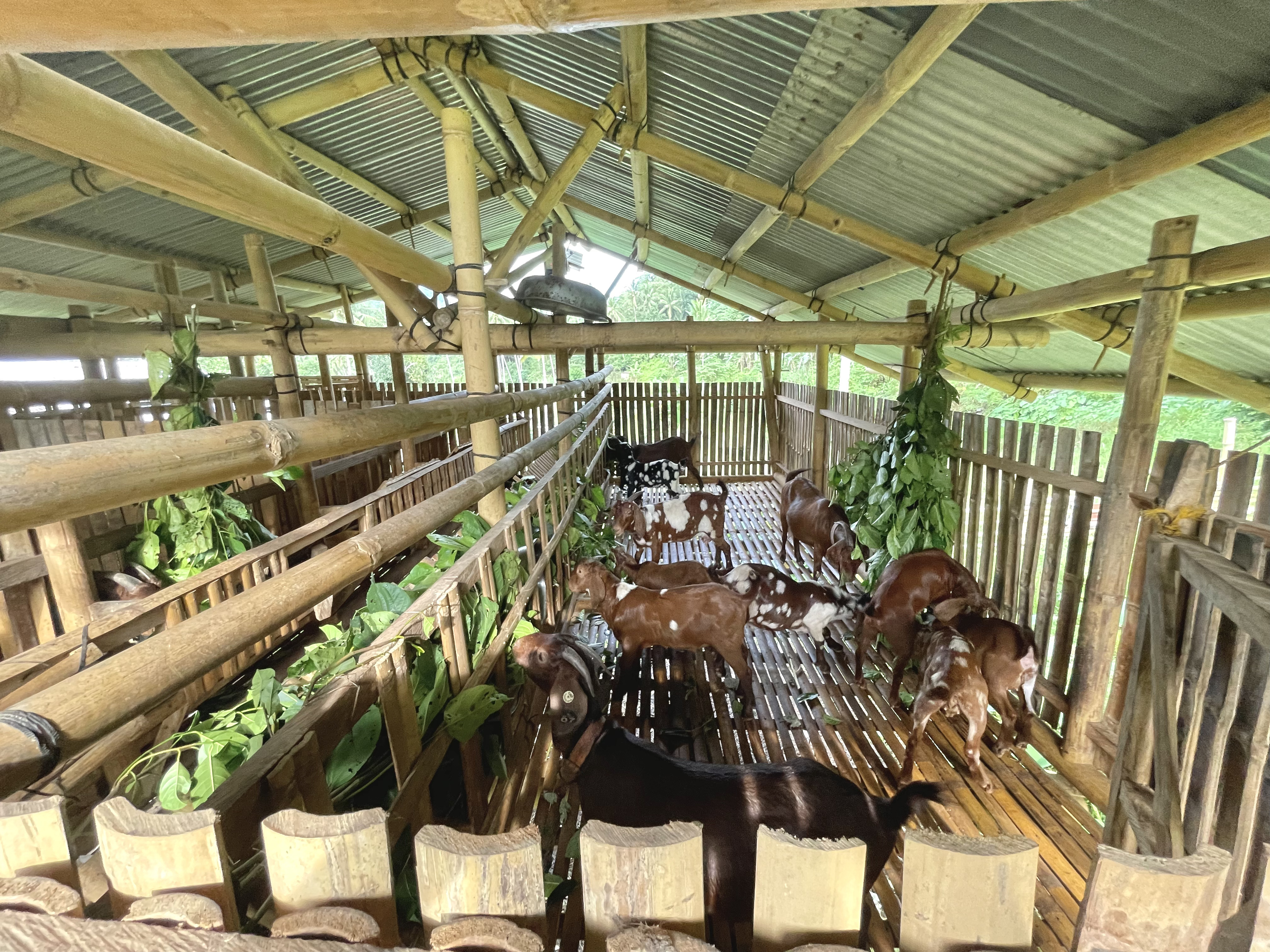
The best-selling goats at CEVA Farm are native goats and upgraded goats because they are low-cost. “These breeds are what we usually offer to those who want to start goat breeding, and we advise them to start small and learn first before they go big in the goat farming industry.”
“Personally, I see goat farming as a stress reliever even if it requires a lot of physical work; it is a good distraction from my stresses at work and personal problems. When I do goat farming, there is a sense of fulfillment seeing the goats breed and seeing their kids grow day-by-day,” Ardie stated. He added that they still have a lot to learn about goat farming and goat breeding but they are enjoying the process and at the same time, the profit comes in.
Photos courtesy of CEVA Farm